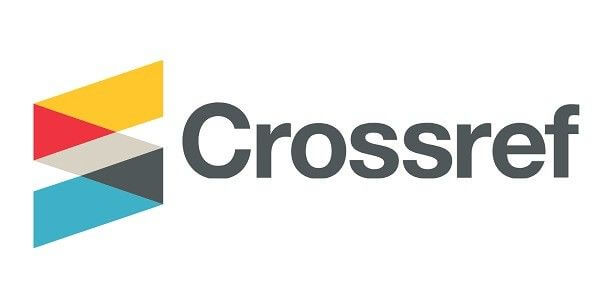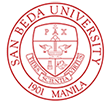Teaching Environmentalism in Philippine Schools: An Empirical Integrative Review
Keywords:
environmental education, environmentalism, Philippine schools, integrative review, non-systematic reviewAbstract
Schools are recognized as crucial agents in promoting awareness and driving collective action against climate change, the most urgent issue of our time. This integrative review examines how schools have adopted this role, with a focus on understanding environmental education (EE) within the context of Philippine schools. It analyzes 21 peer-reviewed online journal articles published between 2000 and 2025 by Filipino authors. The review is framed around three theoretical lenses: Sustainable Development Goal 13 on Climate Action, Republic Act 9512, known as the National Environmental Awareness and Education Act of 2008, and UNFCCC’s Action for Climate Empowerment (ACE). It identifies publication trends, methodological patterns, pedagogical approaches, and barriers to effectively integrating environmentalism into schools. Significant insights were found in this review, including: 1) a steady increase in published articles on environmentalism in schools between 2000 and 2025, with substantial representation from Luzon-based, Catholic, and teacher education institutions. 2) Quantitative research methods, particularly focused on self-perception of program effectiveness, dominate the publication trend, while qualitative and mixed-method studies are underutilized. 3) Further, interdisciplinary and participatory approaches to teaching and learning are increasingly integrated in higher education, whereas methods for teaching basic education students remain highly cognitive, indicating a knowledge-behavior gap. 4) The barriers to effectively integrating environmentalism in schools include limited curriculum space, inadequate teacher training, and a lack of an organized, whole-school approach toward sustainability. Despite these limitations, positive impacts on cognition and behavior are noted, although self-rater bias may be present. It is concluded that emotionally engaging, ethically grounded, and culturally rooted models of environmental education are needed. These models should involve youth, serving as avenues for consistently and collectively assessing and evaluating environmental education (EE) implementation, adoption, and integration, as anchored in Republic Act 9512, the ACE Framework of UNFCCC, and SDG 13. Approaches for integrating environmentalism in schools should also transcend classroom teaching and learning, adopting a whole-school approach (WSA) that considers resources, cultural practices, and institutional support.
References
Alaya-ay, G. M., Cuizon, R. C., & Tagum, E. T. (2012). Teaching environmental education in raising pupils’ environmental awareness: A process approach. IAMURE, 61. DOI: https://doi.org/10.7718/ijss.v2i1.11
Arzadon, M. M. E. (2010). Teacher-intellectuals and the counter-discourses on environmental care. Alipato: A Journal of Basic Education, 4.
Baethge, C., Goldbeck-Wood, S., & Mertens, S. (2019). SANRA—a scale for the quality assessment of narrative review articles. Research Integrity and Peer Review, 4, 1–7. DOI: https://doi.org/10.1186/s41073-019-0064-8
Baring, R., Villacrucis, P. H., Barcenas, J. T., Arsolon, N., Dandan, M. A., Foronda, J., … Magallon-Avenido, J. (2024). The role of Catholic.
Barratt Hacking, E., Scott, W., & Lee, E. (2010). Evidence of impact of sustainable schools. Department for Children, Schools and Families (UK).
Braun, V., & Clarke, V. (2006). Using thematic analysis in psychology. Qualitative Research in Psychology, 3(2), 77–101. https://doi.org/10.1191/1478088706qp063oa DOI: https://doi.org/10.1191/1478088706qp063oa
Brechin, S. R., & Bhandari, M. (2011). Perceptions of climate change worldwide. Wiley Interdisciplinary Reviews: Climate Change, 2(6), 871–885. DOI: https://doi.org/10.1002/wcc.146
Bottin, M., Pizarro, A. B., Cadavid, S., et al. (2023). Agence française de développement (AFD) Research Papers No. 299. ISSN 2492–2846.
Cagsawa, A., Padua, A. R., & Sy, N. A. (2024). The GUIDON. Blue-washing? A look into the Ateneo energy supply partnership. Beyond Loyola Scitech. The GUIDON. https://theguidon.com/2024/07/admu-enters-a-2-year-partnership-with-shell-energy-philippines-and-solx-technologies-transitions-to-being-powered-by-renewable-energy/
Canlas, I. P., & Karpudewan, M. (2023). Teaching and environmentalism: A deduction from values, beliefs, and norms in teaching disaster risk reduction in science. Research in Science & Technological Education, 41(3), 961–982. DOI: https://doi.org/10.1080/02635143.2021.1978421
Commission on Higher Education. (2014). CMO No. 20, series of 2013: General education curriculum: Holistic understandings, intellectual and civic competencies. http://ched.gov.ph
Congress of the Philippines. (2008). Republic Act No. 9512: National Environmental Awareness and Education Act of 2008. https://lawphil.net/statutes/repacts/ra2008/ra_9512_2008.html
Corpuz, A. M., San Andres, T. C., & Lagasca, J. M. (2022). Integrating environmental education (EE) in teacher education programs: Toward sustainable curriculum greening. Problems of Education in the 21st Century, 80(1), 119. DOI: https://doi.org/10.33225/pec/22.80.119
Cruz, M. E. P. (2023). The growing dissonance between the Kosmos and the Anthropos: A hermeneutic study of the mechanistic worldview brought by classical physics and the new rationality introduced by Einstein’s relativity theory and Heisenberg’s indeterminacy principle in quantum physics. Mabini Review, 12(1). https://doi.org/10.70992/bng4a788
Cruz, M. E. P., & Dulay, T. B. (2023). Exploring pedagogical leadership opportunities for a hybrid classroom from the experiences and perspectives of selected college deans and administrators in Manila. Bedan Research Journal, 9(1), 61–83. https://doi.org/10.58870/berj.v9i1.64 DOI: https://doi.org/10.58870/berj.v8i1.52
David, R. I. (2022). Using the VARK model learning style in an online module of Laudato Si: An action research. Papers on Values and Religious Education. DOI: https://doi.org/10.55902/WTIO4705
Department of Education. (n.d.). https://www.deped.gov.ph/climate-change-education/cce-in-the-philippines/
Department of Environment and Natural Resources (DENR). (2010). National framework plan for environmental education (2010–2015). https://policy.denr.gov.ph/2010_NFPEE.pdf
Department of Environment and Natural Resources (DENR). (2016). Environmental education and information division programs. http://www.denr.gov.ph
Fernandez, G., & Shaw, R. (2013). Youth council participation in disaster risk reduction in Infanta and Makati, Philippines: A policy review. International Journal of Disaster Risk Science, 4, 126–136. DOI: https://doi.org/10.1007/s13753-013-0014-x
Ferrari, R. (2015). Writing narrative style literature reviews. Medical Writing, 24(4), 230–235. https://doi.org/10.1179/2047480615Z.000000000329 DOI: https://doi.org/10.1179/2047480615Z.000000000329
Francisco, J. K., & Flores, N. R. (2024). Ecological communion: Integration of Laudato Si’ in Christian faith formation in CICM schools.
Galang, A. P. (2010). Environmental education for sustainability in higher education institutions in the Philippines. International Journal of Sustainability in Higher Education, 11(2), 173–183. DOI: https://doi.org/10.1108/14676371011031892
Garcia, L. C. (2015). Environmental science issues for higher-order thinking skills (HOTS) development: A case study in the Philippines. In Biology Education and Research in a Changing Planet: Selected Papers from the 25th Biennial Asian Association for Biology Education Conference (pp. 45–54). Springer Singapore. DOI: https://doi.org/10.1007/978-981-287-524-2_5
Grant, M. J., & Booth, A. (2009). A typology of reviews: An analysis of 14 review types and associated methodologies. Health Information and Libraries Journal, 26(2), 91–108. https://doi.org/10.1111/j.1471-1842.2009.0084.x DOI: https://doi.org/10.1111/j.1471-1842.2009.00848.x
Greenhalgh, T., Thorne, S., & Malterud, K. (2018). Time to challenge the spurious hierarchy of systematic over narrative reviews? European Journal of Clinical Investigation, 48(6), e12931. https://doi.org/10.1111/eci.12931 DOI: https://doi.org/10.1111/eci.12931
Gutierrez, J., Mendoza, J. K., Cercado, J., & Paganao Jr., S. (2024). On Laudato Si’: Articulation of its message and the SVD’s response. Bedan Research Journal, 9(1), 205–223. https://doi.org/10.58870/berj.v9i1.75 DOI: https://doi.org/10.58870/berj.v9i1.75
Hamilton, E., & Marckini-Polk, L. (2023). The impact of place-based education on middle school students’ environmental literacy and stewardship. Cogent Education, 10(1). https://doi.org/10.1080/2331186X.2022.2163789 DOI: https://doi.org/10.1080/2331186X.2022.2163789
Hart, P., & Nolan, K. (1999). A critical analysis of research in environmental education. Studies in Science Education, 34(1), 1–69. https://doi.org/10.1080/03057269908560148 DOI: https://doi.org/10.1080/03057269908560148
IESM. (n.d.). International. https://iesm.science.upd.edu.ph/about/
Intergovernmental Panel on Climate Change (IPCC). (2014). Climate change 2014: Synthesis report. https://www.ipcc.ch/report/ar5/syr/
Krasny, M. E. (2020). Advancing environmental education practice (p. 312). Cornell University Press. DOI: https://doi.org/10.7591/9781501747083
Kraus, S., Breier, M., Lim, W. M., et al. (2022). Literature reviews as independent studies: Guidelines for academic practice. Review of Managerial Science, 16, 2577–2595. https://doi.org/10.1007/s11846-022-00588-8 DOI: https://doi.org/10.1007/s11846-022-00588-8
Kysh, L. (2013). Difference between a systematic review and a literature review. [figshare]. http://dx.doi.org/10.6084/m9.figshare.766364
Leal, F., Sima, M., Sharifi, A., et al. (2021). Handling climate change education at universities: An overview. Environmental Sciences Europe, 33, 109. https://doi.org/10.1186/s12302-021-00552-5 DOI: https://doi.org/10.1186/s12302-021-00552-5
Lee, T., Markowitz, E., Howe, P., et al. (2015). Predictors of public climate change awareness and risk perception around the world. Nature Climate Change, 5, 1014–1020. https://doi.org/10.1038/nclimate2728 DOI: https://doi.org/10.1038/nclimate2728
Linden, S., Leiserowitz, A., et al. (2017). Inoculating the public against misinformation about climate change. Global Challenges, 1(2). https://doi.org/10.1002/gch2.201600008 DOI: https://doi.org/10.1002/gch2.201600008
Lockwood, C., Porritt, K., Munn, Z., Rittenmeyer, L., Salmond, S., Bjerrum, M., Loveday, H., Carrier, J., & Stannard, D. (2024). Systematic reviews of qualitative evidence. Aromataris JBI Manual for Evidence Synthesis. JBI. https://doi.org/10.46658/JBIMES-24-02 DOI: https://doi.org/10.46658/JBIMES-24-02
Mariñas, E. S., Manaois, R. A., Jose, A. B., & Mandin, M. A. (2022). Vision in action: The impact of sustainable practices of Philippine School Doha on the students' move towards youth environmentalism. Vision In Action, 95(1), 18. DOI: https://doi.org/10.47119/IJRP100951220222891
Mendoza, I. A. F., Gotangco Gonzales, C. K., & Favis, A. M. T. (2024). Experience-based environmental education and significant life experiences that influence environmental action among Filipinos. Journal of Environmental Studies and Sciences, 1–12. DOI: https://doi.org/10.1007/s13412-024-00956-8
Molino, J. N. (2022). An exploration of Cordilleran students’ Christian environmentalism (CE) and environmental awareness (EA): Towards a post-COVID-19 pandemic response to Laudato Si’. Religion and Social Communication Journal, 244.
National Integrated Climate Change Database Information and Exchange System (NICCDIES). (n.d.). https://niccdies.climate.gov.ph/
Nieva, A. (2024). Personality traits as predictors of pro-environmental behavior: Evidence from the Philippines. Bedan Research Journal, 9(1), 145–173. https://doi.org/10.58870/berj.v9i1.68 DOI: https://doi.org/10.58870/berj.v9i1.68
Nisbet, M., & Myers, T. (2009). The polls—Trends: Twenty years of public opinion about global warming. Public Opinion Quarterly, 71(3), 444–470. http://dx.doi.org/nfm031 DOI: https://doi.org/10.1093/poq/nfm031
Official Gazette. (2008). Republic Act No. 9512: An act to promote environmental awareness through environmental education. https://www.officialgazette.gov.ph/2008/12/12/republic-act-no-9512/
Ogoc, M. N. (2015). The University of Eastern Philippines: Green audit. International Journal of Information and Education Technology, 5(4), 297. DOI: https://doi.org/10.7763/IJIET.2015.V5.520
Pabalan, A. P., De Los Reyes-Killian, L. Y. D. I. A., & Pabalan, J. L. (2023). Environmental education in Bohol Catholic schools.
Peracullo, J. C. (2022). Teaching participatory action research as engaged pedagogy in the time of pandemic. Teaching Theology & Religion, 25(1), 3–13. DOI: https://doi.org/10.1111/teth.12604
Philippines Climate Change Country Profile. (n.d.). USAID. www.usaid.gov
Porta, M. S. (Ed.). (2008). A dictionary of epidemiology (5th ed.). Oxford University Press.
Punzalan, C. (2024). Environmental education in junior high school science: Teachers’ integration perceptions through distance learning modality. Jurnal Pendidikan IPA Indonesia, 13(2). DOI: https://doi.org/10.15294/jjqkgj45
Rosales, R. J. (2024). Climate-sensitive religious education curriculum in the unified schools of the Archdiocese of Lipa. International Journal on Culture, History, and Religion, 6(2), 1–14. DOI: https://doi.org/10.63931/ijchr.v6i2.2
San Beda University. (2024). Laudato Si’ year end report 2023–2024. https://www.sanbeda.edu.ph/download_file/1731379682_LAUDATO_SI_YEAR-END_REPORT_2023-24.pdf
Scott, W. (2014). Education for sustainable development (ESD): A critical review of concept, potential and risk. In R. Jucker & R. Mathar (Eds.), Schooling for sustainable development in Europe: Concepts, policies and educational experiences at the end of the UN Decade of Education for Sustainable Development (Vol. 6, pp. 47–70). Springer. https://doi.org/10.1007/978-3-319-09549-3 DOI: https://doi.org/10.1007/978-3-319-09549-3_4
Snyder, H. (2019). Literature review as a research methodology: An overview and guidelines. Journal of Business Research, 104, 333–339. https://doi.org/10.1016/j.jbusres.2019.07.039 DOI: https://doi.org/10.1016/j.jbusres.2019.07.039
Susskind, L. (2020). The environment and environmentalism. In Environmental problem-solving: Balancing science and politics using consensus building tools: Guided readings and assignments from MIT’s training program for environmental professionals (p. 77). DOI: https://doi.org/10.2307/j.ctvrnfqdm
Tan, C. (2019). Environmental attitudes among students in a post-Laudato Si paradigm: Transferees vs. continuing students in a Catholic university in the Philippines. In Philosophy and practice of bioethics across and between cultures (pp. 80–89).
Tesoro, F. B. (2020). Environmental education and green curriculum: Philippine higher education response to sustainable development. Journal of Environmental Education Studies, 18(2), 45–62.
Tilbury, D. (1995). Environmental education for sustainability: Defining the new focus of environmental education in the 1990s. Environmental Education Research, 1(2), 195–212. https://doi.org/10.1080/1350462950010206 DOI: https://doi.org/10.1080/1350462950010206
Tilbury, D. (2011). Education for sustainable development: An expert review of processes and learning. UNESCO. https://unesdoc.unesco.org/ark:/48223/pf0000191442
Toan, D. T. T., Kien, V. D., Giang, K. B., et al. (2014). Perceptions of climate change and its impact on human health: An integrated quantitative and qualitative approach. Global Health Action, 7(1), 23025. https://doi.org/10.3402/gha.v7.23025 DOI: https://doi.org/10.3402/gha.v7.23025
Torraco, R. J. (2016). Writing integrative literature reviews: Using the past and present to explore the future. Human Resource Development Review, 15(4), 404–428. https://doi.org/10.1177/1534484316671606 DOI: https://doi.org/10.1177/1534484316671606
UNESCO. (2010). Climate change education for sustainable development. https://unesdoc.unesco.org/ark:/48223/pf0000190101
UNESCO. (2016). Getting climate-ready: A guide for schools on climate action. https://unesdoc.unesco.org/
Published
How to Cite
Issue
Section
Copyright (c) 2025 Maria Eliza Cruz-Ocampo

This work is licensed under a Creative Commons Attribution-NonCommercial-NoDerivatives 4.0 International License.











